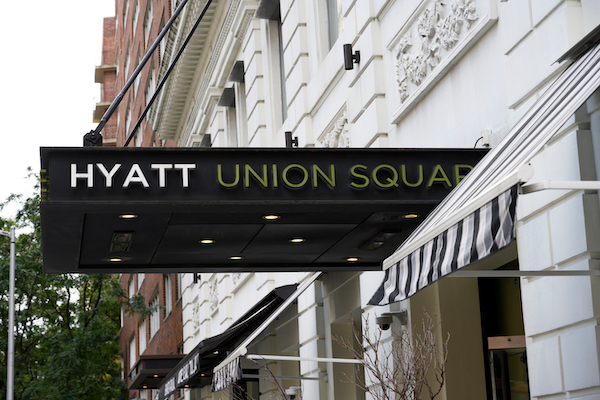The news hit the wires August 28th: private equity firm KSL Capital Partners will acquire Hersha Hospitality Trust for $1.4 billion, taking the REIT private. The deal is noteworthy on a number of different levels, including both what we know and what we do not know.
Background
Hersha’s share price had been on a downward trajectory since well before the pandemic, exhibiting considerably more volatility than many other lodging sector REIT stocks. After hitting highs in the mid-aughts, it sank to below $3 per share briefly in April of 2020, when the entire sector was hit with pandemic-induced panic. It recovered slightly to over $9 by June, but, unlike some if its peers, has never approached anything close to its pre-pandemic levels.
The company began selling off assets in late 2020, shrinking from 48 properties/7,644 rooms at year-end 2019 to its current 25 hotels/3,811rooms. Unlike its better-capitalized peers, Hersha was unable to make any new acquisitions. Overall, a $10 per share price compares favorably to its recent trading prices in the $6.00 to $6.50 range. This seems an acceptable outcome for shareholders.
KSL Capital, in the meantime, raised capital for three new funds in 2021 and has been deploying the proceeds, and using its

access to debt, to consummate a number of high-profile lodging industry property and JV acquisitions. Of note:
- June 2023: acquisition of a majority interest in Sereno Hotels
- February 2023: acquisition of the Martin Resorts portfolio
- June 2022: acquisition of the W and Sheraton properties in the Maldives
- March 2022: JV acquisition of The Pig Hotels
- February 2022: JV acquisition of The Silverado Resort Napa Valley
- December 2021: acquisition of majority stake in the Eden Hotels, Netherlands
- December 2021: acquisition of the Davenport Hotels, Spokane
Surface Story
- Hotel ownership in the U.S. is predominantly a private affair. The large public hotel companies have been following asset-light strategies for decades now, so they own little of the nation’s hotel stock. And NAREIT, the National Association of Real Estate Investment Trusts, reckons that public lodging REITs own only about 1,900 of the country’s approximately 60,000 hotels. This deal will continue the sector’s privatization.
- KSL’s portfolio is concentrated in the resort segment, mostly in the upper-upscale or higher categories (with a smattering of upscale and select-service assets). Their assets also include an eclectic mix, within that stratum, of hotel brands and independent properties.
- Hersha’s property distribution fits well into KSL’s existing portfolio in terms of brands, classes, chain scales and locations.
- Hersha’s portfolio also includes eight independent properties. So this deal is not a game-changer or directional shift for KSL; rather, KSL appears to be doubling down on its current property and geographic mixes, with Hersha’s portfolio giving it perhaps a slight slant toward more eastern/urban markets.
- While the opportunity cost of the strategy is that KSL is not diversifying, the upside is that Hersha’s properties should be easily homogenized into KSL’s existing portfolio. And, of course, KSL will gain scale with the additional inventory.
- With so relatively few select-service properties in each company’s stable, it remains to be seen whether KSL might eventually spin off those assets. One future strategy might be for KSL to package all its non-core, select-service assets together and spin them off to a larger-scale buyer.

The Unknown
- Twenty-one of Hersha’s 25 hotels are managed by HHM (Hersha Hospitality Management), an entity with ties to Hersha’s founders and executives. It has not been stated whether Hersha will deliver the properties free and clear of management or encumbered. It is also unclear, if, in the case of the latter, what the termination provisions are and the timing, ease and costs of termination. Given that HHM is an unbranded manager, the ability to terminate upon a subsequent sale would be the norm. But trying to understand the deal valuation won’t be possible until this is known.
- It has not been shared what will happen to the existing branding of Hersha’s properties. Here’s a list of those brands:
- Autograph Collection: 3
- Hampton Inn: 1
- Hilton Garden Inn: 3
- Holiday Inn Express: 2
- Home2 Suites: 1
- Hyatt: 1
- Hyatt House 1
- Independent Collection: 8
- LHW: 1
- Marriott: 1
- Ritz-Carlton: 2
- Westin: 2

- Which of the third-party brands are effectively locked in by virtue of their franchise agreements? While most of those include termination windows (per Hersha’s 10k), we don’t know when they can be triggered. Will KSL be willing to perform whatever PIPs are required or is the thinking to re-brand some or all of the hotels or to take some or all independent (what liquidated damages would be due if so)?
- Is KSL likely to change management, possibly enlisting the services of its related hotel management company, KSL Resorts, for at least some of the properties?
- The Independent Collection is a construct of HHM. It appears to be a nascent soft brand, whose website currently reports a total of 23 hotels (that would mean there are 15 properties, presumably all managed by HHM, in addition to Hersha’s eight). Does the acquisition include any obligation on KSL’s part to keep or expand the Independent Collection brand? Will this deal trigger HHM’s entering the franchise/hotel brand business?
Conclusion
The differences between the lodging REITs and the big-branded, asset-light hotel companies’ guidance for the second half of 2023 is noteworthy. Most of the former have been guarded in their expectations due to the prospect of higher interest rates and operating costs (and, in some cases, due to lower RevPAR growth expectations), while the brands have been more optimistic. If everyone’s correct, the KSL/Hersha deal might herald a spate of REIT buy-outs or mergers, as private equity is able to value the REITs higher than the public markets can. This could be a desirable outcome for some of the capital-constrained lodging REITs and could bolster share prices in the sector, while also reducing, even more, public company ownership of lodging properties.
Karen Rubin is the managing director of Karen Rubin Hotels. From 2000-2015, she was SVP of global development for Starwood Hotels & Resorts Worldwide.
